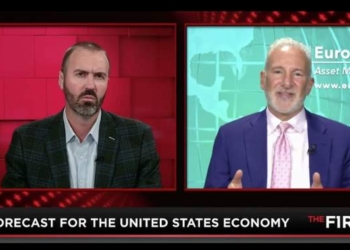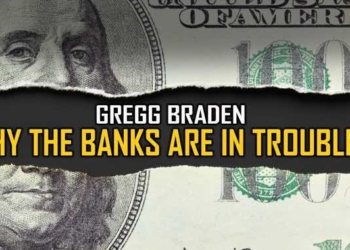Despite the economic climate, house sales in the US are currently having a resurgence, with houses selling faster than they were in 2017-2018. If you are looking to get a foot on the property ladder, now is most definitely a good time to start getting your finances in order and preparing to make what is probably the biggest purchase you are likely to make.

In 2021, the reason behind why you are looking to buy property is just as if not more important as if it is simply the right time. Is this the right time for you to buy a property? With rising house prices, you need to commit for all the right reasons, and failing to address your desire could mean you experience bumps in the road further down the one. In fact, many millennials are finding themselves purchasing fixer-uppers due to the rising costs of newer built homes and those in a good state of repair and decor.
Approaching Buying Property in 2021
With this in mind, you should focus more on the monthly repayment you are comfortably able to make rather than the size of the mortgage as a whole. Include all of your maintenance costs, mortgage cost, taxes, and insurances to give you an idea of what you can be expecting to pay out each month. A good rule of thumb is that these payments should take up no more than 30% of your income. This can help you to avoid becoming house poor and working to live in a property you don't enjoy because you are working all the time.
If you can avoid thinking of your new property as an investment and primarily as a home instead, you can open yourself up to better options and avoid any crushing disappointment that comes with this, especially due to the increase in housing prices the market is currently seeing.
However, one thing to bear in mind is the lower interest rates that you can take advantage of if you buy a house right now. Interest rates are due to stay low due to the covid pandemic but with these lower rates comes stricter controls on who gets approved for a mortgage, with many people finding that even with a decent credit score, they are unable to obtain preferable rates or even a mortgage at all if their score is considered to be poor.
How To Get Yourself Mortgage Ready
Everyone is aware of how financially ready they need to be to purchase a home. The basics of making sure you have a good reliable income. You have reduced your debt levels and are comfortably making and maintaining all of the payments you need each month.
Improving your credit score is the best way to make sure you are financially ready to be preapproved for a mortgage. Generally speaking, a good credit score for lenders is above 620, but aiming for 740 can really open up the best mortgage deals around.
Adding to this saving for your down payment, reducing frivolous spending, and concentrating on becoming as financially healthy as possible is something that takes time and dedication, so if you aren't here yet, it may be worth waiting that extra time until you are in a better position to buy.
Using a mortgage calculator can help you better understand the type of rates you can benefit from and repayment figures before you commit. If you have a better idea of how much you will be replying in theory, then you can learn to adjust to giving within your means before you sign on the dotted line, so to speak.
Browse Listings
If you are happy, you are in a good position to be approved for a mortgage, it will always be a good idea to get a feel for local house prices in your area and the state of repair of the homes you can afford. If you are serious about buying your home, then rising house prices means you might be looking at taking on a fixer-upper. While this allows you to put your own stamp on your home, it can be a costly and lengthy process to get it to where you want it to be.
Remove any of the shocks of what you can afford by being realistic about what you can realistically dedicate to mortgage payments, the size of your down payment, and current sale prices in your desired area. If it means you need to purchase a home that needs considerable work, this is something you can become acclimated with before you put in your mortgage application or leave until you are in a better position financially.
Your Work History
Did you know you will need to verify your employment? Your potential lenders will look at your work history alongside your financial history and credit score. This is an important part of the application process. No lender wants to commit to a mortgage with people who cannot hold down a job for any period of time.
It makes sense that if you have just changed jobs, taken on a new position, or are self-employed, you take the extra time to wait until you can prove a track record of reliability and income to assure lenders you are a good candidate for a mortgage.
For self-employed applicants, there are more stringent checks, so make sure you can prove your income and its stability over a requested period of time.
The Mortgage Application
As a bare minimum, your lender will be looking at the following criteria;
- Will you repay the loan? This requirement basically asks, “Does your income cover the new mortgage payment as well as all of your other monthly expenses?” Lenders use your debt-to-income ratio to determine this (DTI). Most lenders prefer a debt-to-income ratio of 36 percent or less.
- Are you likely not to repay the loan? Lenders use your payment history and credit score to predict your ability to make future payments.
- The value of the home. The underwriter closely examines the value of the home you're buying (as determined by a professional appraisal ordered by your lender) to ensure that it meets or exceeds the purchase price. This will also assist them in determining whether the loan-to-value ratio (LTV) is within the parameters of the loan program. Most lenders require a loan-to-value ratio of no more than 80-95 percent to qualify for a conventional loan. The lower your LTV, the higher the value of your home and the less you owe on it. More information on the home appraisal process can be found here.
- Your down payment. If you put down less than 20%, you will usually be required to pay private mortgage insurance (PMI), which raises your monthly mortgage payment. The underwriter will look over your documentation to see if you have enough money to cover the closing costs. Depending on the loan program and/or loan amount, you may also be required to have set aside two or more monthly mortgage payments as reserves. Lenders typically require reserves to cover your mortgage payment in the event of an emergency or unforeseen event.
Are you ready to apply for your mortgage?















